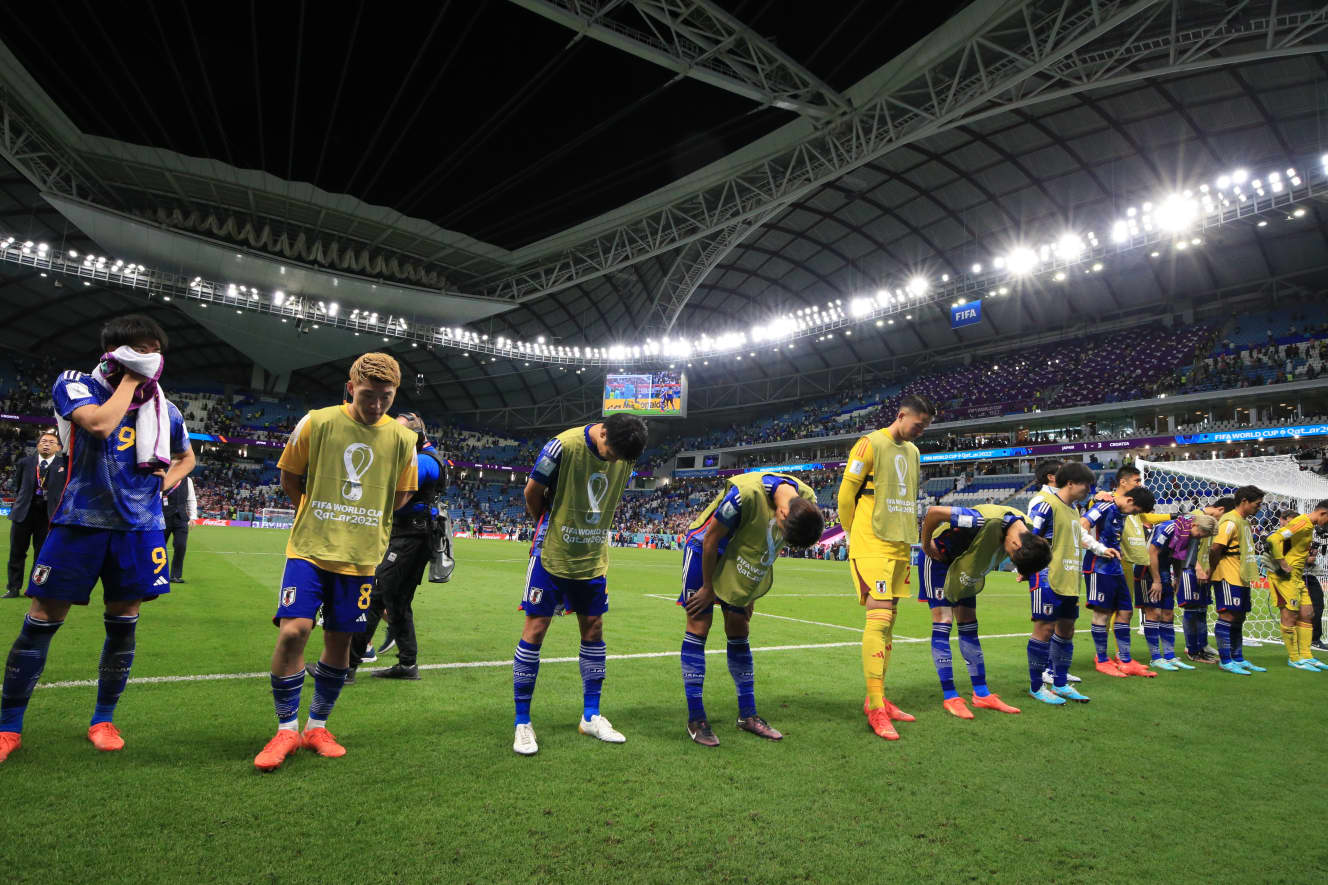Priority is given only to name value… “Big Questions” Seen in Moriyasu Japan’s “New Coaching Team,” Which Has Begun to Take Action

The battle for the next World Cup has begun.
Japan’s national soccer team coach Hajime Moriyasu, 54, was officially confirmed at the end of last year. He will remain in charge for four years until the next World Cup, which will be held in the United States, Canada, and Mexico in 2026. Under the Moriyasu administration, which will be the longest in the Japanese soccer world, the team will aim to achieve its long-cherished goal of reaching the top eight at the World Cup.
The selection of coaches has been the focus of much attention. Of particular importance are the appointments of Akinobu Yokouchi, 55, who has been in charge of strategy, and Yusaku Ueno, 49, who is known for his ability to nurture players.
Mr. Yokouchi has supported Mr. Moriyasu for many years as his right-hand man. Mr. Yokouchi’s strength is in designing attacks, and he was instrumental in helping Mr. Moriyasu win three league championships with Sanfrecce Hiroshima. Mr. Ueno, on the other hand, was manager of the Urawa Reds’ top team and youth division, and was selected for the national team because of his nurturing skills. However, both of them will be coaching J-League teams next season. Moriyasu is having a hard time filling the void,” said a sports newspaper reporter in charge of soccer.
In this situation, Ryoichi Maeda, 41, a former Japan national team goalkeeper, was chosen to fill the vacancy. After working as Jubilo Iwata’s U-18 coach, he will become the club’s U-18 coach in 2022. He has also been energetic, sending offers to free kick master Shunsuke Nakamura (44). However, their reputation as coaches is not high. Sportswriter Mimura Yusuke, who has covered the national team for many years, said.
Moriyasu’s strength is his ability to adjust. Basically, he is good at getting each player to think, adjusting their opinions, and incorporating them into the team. On the other hand, his weakness is in creating his own organization and team tactics, and making sure they are thoroughly implemented. A coach who can compensate for these weaknesses should be selected, but Maeda, who is considered a sure bet, has no experience as a top team coach, and his abilities in this area are unknown. I feel the same way about Nakamura. I hear that Hiroshi Namba (50) and Yuki Abe (41) are also candidates, but they do not have any significant achievements.

The selection of the team has been questioned even among those involved.
The two former coaches have been coaching for more than 10 years and have experience coaching the top teams of J1 clubs. Even though we need to bring in coaches better than them to make it to the top eight, I can’t deny the feeling that they were chosen for their name recognition rather than their track record. As long as name value is given priority, results will not follow.
At his inauguration press conference, Moriyasu said, “I would like to think about the coaching staff as a whole,” and suggested the creation of new roles and an increase in the number of coaches. Mimura noted, “We should move to bring in not only Japanese but also foreign coaches.
With Mr. Moriyasu’s strength in coordination, he can adapt to any eccentric coach that comes along. That is why I hope that he will not give up until the last minute on calling for up-and-coming coaches who are working in top leagues overseas, such as Spain and England. The biggest problem in Japan today is that the players have a better track record than the coaches. As long as you choose coaches from the Japanese, this problem will definitely follow. I hope they will continue their efforts to incorporate the world’s most advanced soccer until the end.”
The new Moriyasu Japan team is preparing for international friendlies in March. In order to become a team capable of winning on the world stage, no compromises will be tolerated.
Photo: Photo by JMPA representative